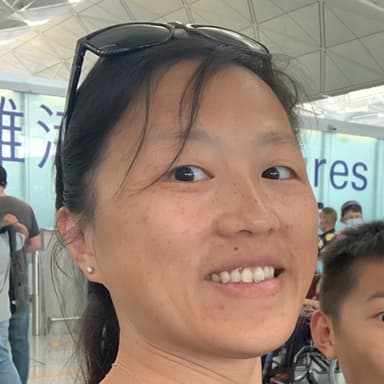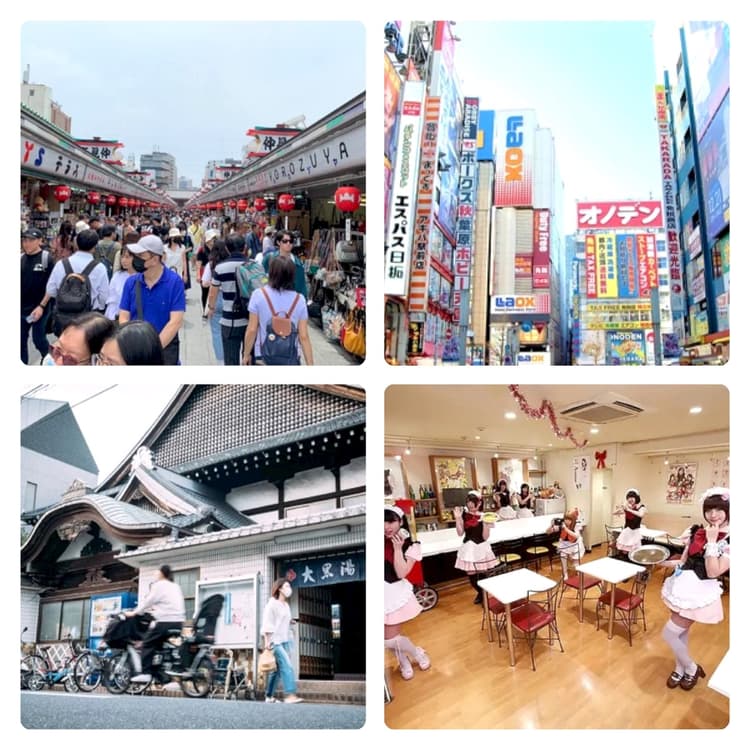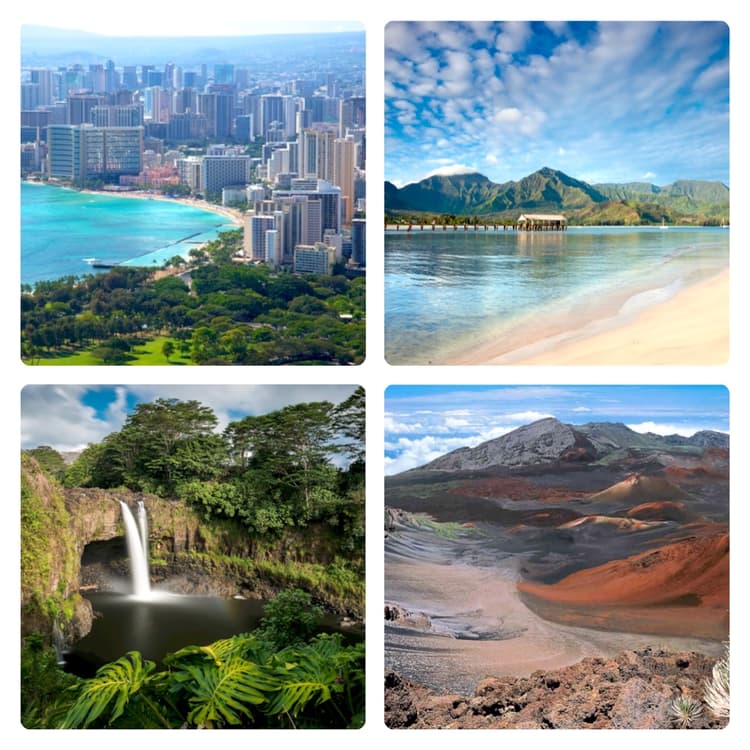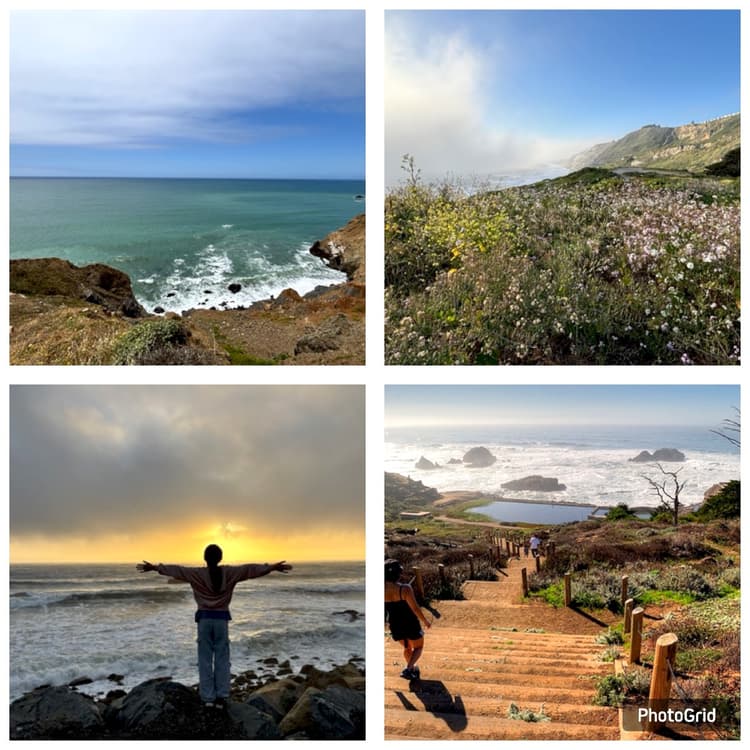Exploring Beijing in 2023
Posted by Grace on August 17, 2023
China was closed for tourism for 3 years, from 2020 to 2022. In 2023, it finally opened up, and I could finally visit the city where I grew up and loved.
A lot of things changed during the past 3 years, but Beijing still has its charm!
Contents
What to See in Beijing
Tiananmen Square
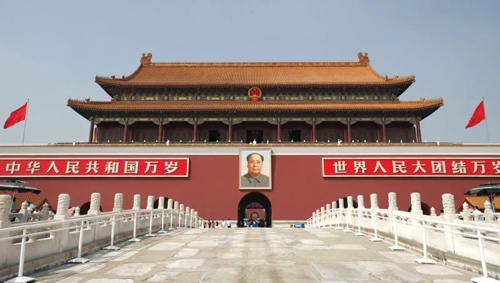
Tiananmen Square is like the heart of Beijing, China. Imagine it as a huge open space in the middle of the city, kind of like a giant plaza. It's not just any plaza though – it's a place that has seen a lot of important moments in history.
This square has been around for a long time, and it's been a witness to many significant events and gatherings. People from all over the country and the world have come here to celebrate, protest, and remember important things. It's a place where leaders have spoken, and where people have stood up for their rights.
Tiananmen Square is surrounded by important buildings, like the Forbidden City and the Great Hall of the People. It's a place where the past meets the present, and where the pulse of Beijing can be felt. When you stand there, you can almost feel the energy of all the stories that have unfolded on that very ground.
Forbidden City
The Forbidden City is like a gigantic, ancient palace in the heart of Beijing, China. It's not just any palace – it's one of the most famous ones in the world, and it's really, really big.
Back in the old times, emperors and their families used to live there. They called it the "Forbidden" City because not everyone was allowed to go in. Only special people like emperors, officials, and important guests could enter through its impressive gates.
The buildings inside are super fancy and beautiful, with colorful roofs and intricate decorations. There are grand halls, peaceful courtyards, and stunning gardens. Each part of the palace has a special purpose – some were for meetings, some for ceremonies, and some for just relaxing.
Today, the Forbidden City is like a giant museum. People from all over the world visit to see its amazing architecture and to learn about China's history. It's a place where the stories of emperors and ancient times come alive, giving us a glimpse into the grandeur of the past.
Summer Palace
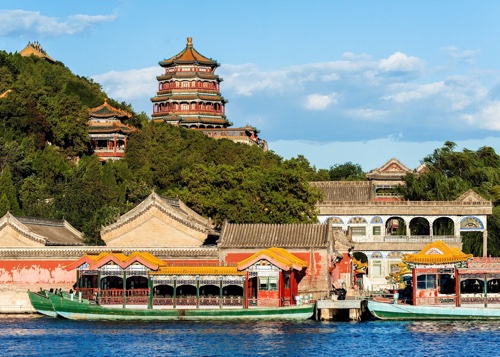
The Summer Palace in Beijing is like a big beautiful garden with a grand palace by a lake. It was built a long time ago for emperors and their families to relax during hot summers. People visit to see the pretty buildings, walk around the gardens, and enjoy the calmness of the lake. It's a place where history, nature, and architecture come together.
Qian Men and Da Shi Lan
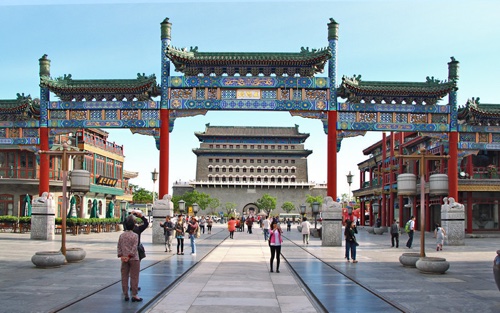
Qian Men, also known as Zhengyangmen, is a prominent historical gate located at the southern end of Tiananmen Square in Beijing, China. This gate was a vital entrance to the inner city during the Ming and Qing dynasties. It holds significant cultural and historical importance, standing as a reminder of Beijing's rich past.
Connected to Qian Men is Da Shi Lan, a famous commercial street that stretches southward from the gate. Da Shi Lan, meaning "Big Stone Lane," is an ancient commercial street dating back to the Ming Dynasty. It has witnessed centuries of trade and commerce, making it a vital part of Beijing's historical landscape.
Da Shi Lan has been preserved and renovated over the years, transforming it into a vibrant pedestrian street that merges historical architecture with modern shops and amenities. It offers visitors a blend of traditional Chinese architecture, various shops, restaurants, and cultural attractions.
Exploring Qian Men and Da Shi Lan provides a window into Beijing's historical evolution and its transition into a modern metropolis. Visitors can immerse themselves in the area's rich history while enjoying the bustling atmosphere of a vibrant commercial street.
A Walk Along the Central Axis Line
If you have a day or two free, I highly recommend taking a long walk along the Central Axis Line. You will learn a lot about Beijing's historical significance. You can also find local walking tours along this line.
What to Eat in Beijing
Peking Duck
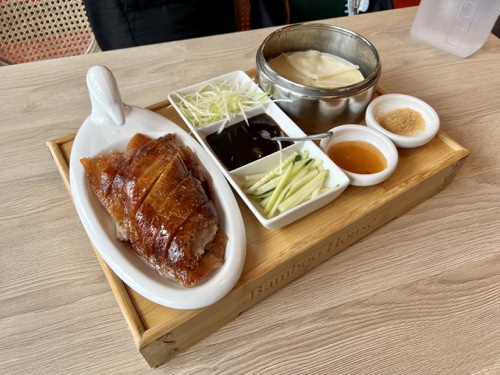
Peking duck is a must-try dish in Beijing. This is something Beijing locals take pride in.
Roasted ducks sliced into small pieces. Wrap the slices, green onions, cucumber, and sweet soy sauce with thin flour wrappers. Mmmmm... I'm watering while typing these words.
There are two kinds of Roasted Duck in China: the Peking duck from the North, and the Cantonese duck from the south. They are prepared differently. I have my bias: Peking duck is the best.
A whole set of Peking duck costs around 150 and 200 RMB (equivalent to 20 USD to 30 USD), for a group of 4. You can also buy a half set at the restaurants.
Hot Pots
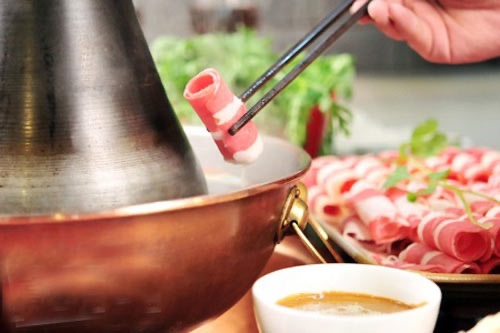
Many countries have hot pots, but Beijing has its own. The traditional Beijing hot pot is served with lamb slices along with the copper pot with coals. You will boil the lamb slices in the boiling soup and dip them in the sauce made of sesame paste and fermented tofu.
Lamb is the main meat, but you can add beef tripe, vegetables.
My high school friend now owns a hot pot restaurant chain in Beijing. They only build their restaurants where Beijing locals live close to, as opposed to where expats live. Because Beijing people love hot pots.
Lamb Skewers
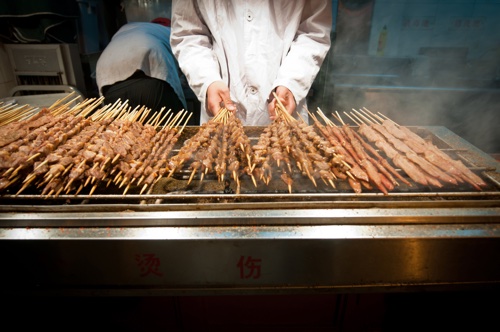
What I love about Beijing is the abundance of lamb. In the US, you can only get lamb from Chinese grocery stores and Trader Joe's. They are often frozen. In Beijing, you can buy fresh lamb.
Lamb skewers used to be street food introduced from Xinjiang province. Now with fewer street food vendors in Beijing, you can find lamb skewers in restaurants.
Fresh lambs are cut into small cubes, and put on skewers, grilled with salt, cumin, and red pepper spice. Not only the meat can be made into skewers, many parts of lambs can be, including kidneys, cartilage, and even testicles. You can also do garlic, chicken wings, and bread.
If you feel disgusted by now, I don't blame you. Welcome to Beijing.
Tips
Have your ID with you all the time
You will need your IDs most of the time, including getting on subway trains, buying park tickets, etc.
From time to time, you may get checked if you walk around in politically sensitive areas, for example, Tiananmen Square.
Check whether you need to reserve tickets for the parks you need to visit
Most of the parks in Beijing require reservations beforehand. This was a big shock to me, because when I was little, I just went whenever I wanted to. But it has become very common in other countries too.
You can usually reserve on WeChat or official websites.
Closed internet
You may have heard about this before: China has a closed internet, meaning you cannot visit most websites from outside the country.
So don't be surprised if your browser returns a 404 error when you try to access Gmail over WiFi.
If you have a phone with a foreign carrier such as T-Mobile and continue to use it on a roaming plan, you should still be able to access those websites just like you are in any other part of the world.
Avoid visiting Beijing during July and August
Beijing is a popular place to visit, even for people from other parts of China. July and August are the summer break for schools. People will flood into the cities and visit the same places that you, as foreigners, would love to go. All the parks are jammed with people. I'm not kidding.
It would be very difficult to get reservations if you go during those two months.
Don't compete with them. Visit at different times.
Useful apps
Many Western apps do not work well in China, including Google, Google Maps, Yelp, Facebook, Uber, Instagram, Twitter, Amazon. They are either hard to use or they cannot operate in China due to the closed internet.
Here is a list of apps you may be able to use:
- Apple Maps
- Bing
These Chinese apps are very helpful if you can read some Chinese:
- Baidu: Search Engine, equivalent to Google Search
- Da Zhong Dian Ping: Reviews for restaurants, places, equivalent to Yelp
- Didi: Ride sharing, equivalent to Uber
- WeChat: Messenger and Payments. Chinese people don't send SMS text messages. WeChat is the de facto communication tool.
- Alipay: Payment. In general, Wechat and Alipay are the only two ways to pay.
- Taobao: Shopping, equivalent to Amazon
Almost Cashless
Very different from Japan, where cash is still popular, China has become more and more cashless. You use Wechat and Alipay to pay for everything in life: your groceries, your mobile phone payment, your activities, everything!
Cash has become very inconvenient for merchants. Once, my husband sat in a noodle shop and was waiting for a waiter to come. But the waiter gestured to him that he needed to view the menu on Wechat and pay there, and the noodles would be delivered to him. As my husband handed the waiter cash, he was a little annoyed because he had no cash and had to go to other shops to find change for my husband. It was an interesting encounter and definitely speaks volumes about the cashless society that China has become.
Final Words
The information above summarizes a lot of learnings from visiting China in 2023. Will reservations at the parks go away as Covid restrictions are gone? I don't know and I don't think so.
I know many Westerners have various opinions about China considering politics. But being respectful of their cultures and their norms of life is important. Beijing is rich in history and has so much to offer.
